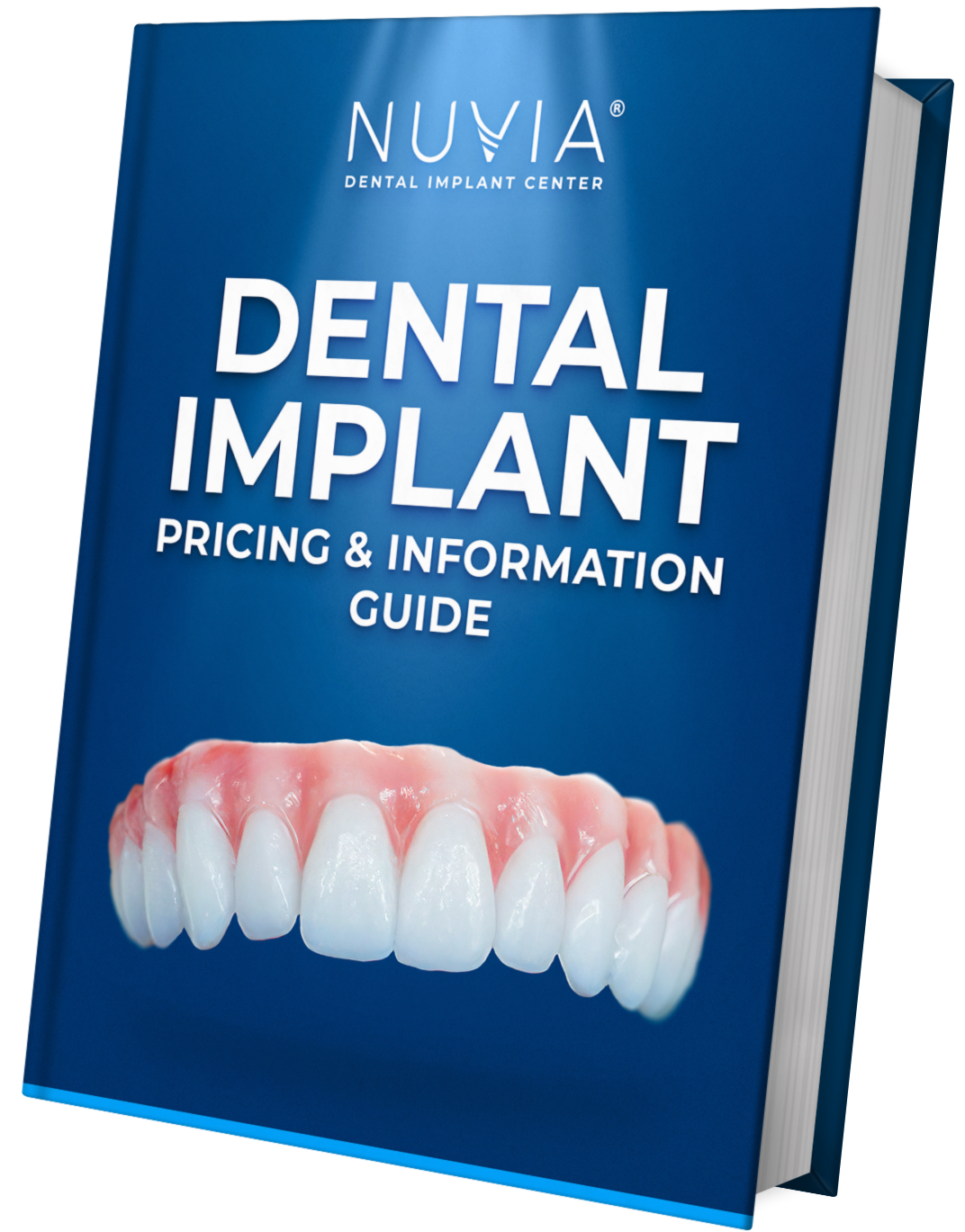
Dentures For Bad Teeth - Is It A Good Idea?

Are getting dentures for bad teeth a good idea? Or is there a better solution?
First, we need to talk about what kind of problems are happening to cause the “bad teeth”. There can be a lot of different issues when it comes to our teeth, some of which aren’t that dangerous, so how do we know when we actually need to do something about it?
How Do You Know When Your Teeth Are Headed for Trouble?
Here are a few telltale signs …
Your Gums Are Red and Inflamed
If your gums are bothering you, pay attention. Irritated, sensitive gums are often a warning sign that you might have gum disease. When you take care of your gums by flossing, brushing, and rinsing on a consistent basis, this shouldn’t happen. So if it does, watch out. If you catch it early on, you can treat your periodontal disease with a special cleaning at the dentist and a prescription toothpaste or mouth rinse.
Sometimes, however, it can lead to more serious problems. Ignoring your gum issues may cause more serious issues such as bone loss. If bone loss happens, then either dentures or a more permanent solution may be in order.
Painful Toothaches
If you have a toothache that just won’t quit, it’s a sign that you need to see your dentist because something is wrong. There can be many different reasons for a toothache, but if it is a persistent problem it can be because of nerve damage in the tooth. No matter how long you have had a toothache, it is never a bad idea to get it checked out by your dentist.
Chewing is a Problem
The purpose of your teeth is to chew your food well so it can be digested and, in turn, nourish our bodies. If you can’t chew without pain, it is a definite signal to you that your teeth need some extra love and care.
Something you may not have realized is that regular indigestion can be a result of damaged teeth. When your teeth hurt, chewing is avoided. This can mean that you’re taking bites and chewing as little as possible. This can cause your body to not digest food properly.
Wiggly Teeth
As adults, our teeth should not be loose. If you have shifting or loose teeth in your mouth, you probably have some form of tooth deterioration.
More than likely you have bone deterioration below the gum line that you just can’t see. If you have gaps in your teeth (that haven’t always been there), then the bone loss is happening under the gum line. If the gaps between your teeth are getting bigger in between your teeth, it’s time to have a chat with your dentist.
You No Longer Have a Full Set of Teeth
Have you started to lose your teeth? According to the ADA, over 120 million Americans are missing at least one tooth. But, just because a lot of people are missing teeth doesn’t mean that you should leave it that way…
The more teeth you lose, the worse your problems become. Every time you lose a tooth, your healthy teeth begin to shift and weaken. The sooner you can get this taken care of, the better.
But, you may be asking…
How do I fix my missing or broken teeth?
Are Dentures a Good Idea for Fixing Bad Teeth?
If you are missing teeth or losing your teeth, then you already know it’s time to do something about it. A lot of people immediately think of dentures because it is something they are familiar with. But, dentures are not a permanent solution for missing teeth. That’s right, they have to be continually adjusted and even replaced.
Not to mention the fact that they are fragile, uncomfortable, bulky, and have to be taken out every day…
A permanent solution would be dental implants.
Are all dental implants the same?
Nope, not all dental implants are the same, and not all dental implant providers do the same thing. There are single implants, implant bridges, and full mouth dental implants. You can learn about those here.
A lot of dental implant providers will offer something called “Teeth-in-a-day”, but the teeth you get that day are not really your permanent teeth...
Instead, they take a plastic denture and convert it to where it fits on the dental implants. This temporary prosthetic set of teeth isn’t made out of durable material like zirconia, it’s usually just an ordinary acrylic denture.
That is, until they create your permanent set of teeth. You can read more about that process here.
Luckily, we do not offer “teeth-in-a-day”...
Instead, we offer Nuvia’s Permanent Teeth In 24 Hours.
With Nuvia’s permanent teeth in 24 hours, we actually do provide you with a set of permanent teeth (made from Zirconia) within 24 hours of the dental implant surgery. We do NOT use any temporary dentures. If you want to learn more about the difference in these procedures, check out our article “teeth-in-a-day” vs Nuvia’s Permanent Teeth in 24 hours.
Want to know if you may be eligible for Dental Implants? Find out by taking this 60 second quiz now!
More Articles Like This one

All on 4 Dental Implants: A Complete Guide

3 Misconceptions About Dental Implants Debunked






